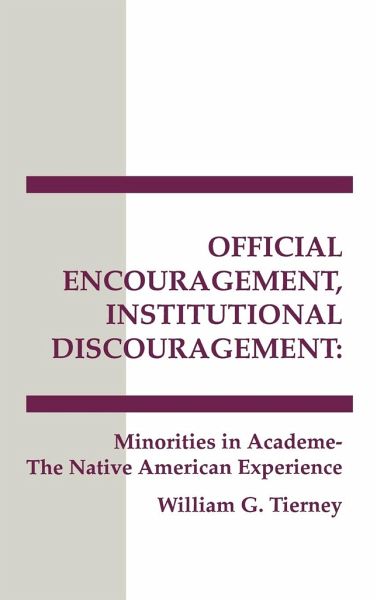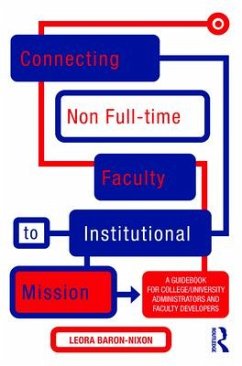
Official Encouragement, Institutional Discouragement
Minorities in Academia-The Native American Experience
Versandkostenfrei!
Versandfertig in 1-2 Wochen
87,99 €
inkl. MwSt.

PAYBACK Punkte
44 °P sammeln!
The impetus for this book derives from the unusually high percentage of minority students generally, and Native American students specifically, who do not complete a collegiate degree. Of all ethnic groups in the U.S., Indian students experience the most difficulty in obtaining a degree. A host of strategies and policies have been implemented by well-meaning administrators to decrease attrition, yet these ideas have often failed to make any significant difference in whether Indian students graduate. This volume is the result of a two-year study of Native American undergraduate students. It off...
The impetus for this book derives from the unusually high percentage of minority students generally, and Native American students specifically, who do not complete a collegiate degree. Of all ethnic groups in the U.S., Indian students experience the most difficulty in obtaining a degree. A host of strategies and policies have been implemented by well-meaning administrators to decrease attrition, yet these ideas have often failed to make any significant difference in whether Indian students graduate. This volume is the result of a two-year study of Native American undergraduate students. It offers suggestions based on longitudinal data for empowering Native American and minority students at the organizational, curricular and classroom levels. By employing a critical framework, the book extends our thinking about minorities in academia, and provides insight into the pitfalls that occur with liberal solutions for retention and recruitment strategies.












